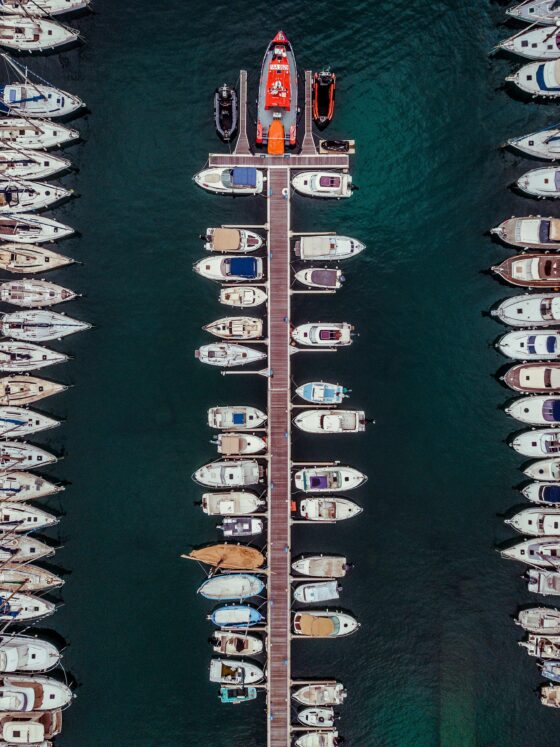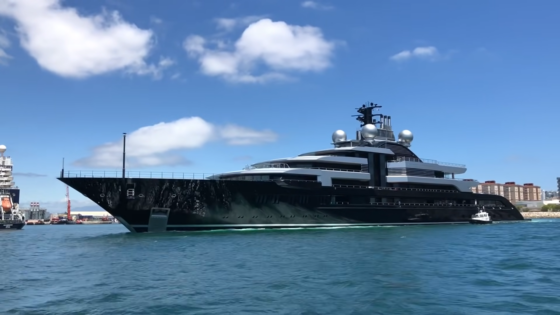
Industry focus: will Russia burst the boating boom?

David Lewin, Global Marina Business Advisors (GMBA) UK, asks if the marine industry is sufficiently futureproofed or is the bubble set to burst?
Just when we thought it was safe to get out on the water – another shark has come to encircle us. Life was improving, we were coming out of covid, people had decided that family time was precious and that boats provided a very good way to achieve that. The order books were (and still are) full and apart from some supply and manpower issues everything looked rosy.
And for many it is. Boatbuilders haven’t seen order books like this for years; one of the problems for the re-emerging boat shows is lack of inventory to put on the stands. Suppliers are being pushed to increase volumes and the superyacht industry has work until 2027.

Certainly we were beginning to see signs of inflation creeping in with increases in raw materials such as aluminium and stainless steel but with such a strong order book would this really be a problem?
The pandemic was coming under control and people just wanted to get out there and enjoy themselves again.
But what started as ‘weak signals’ with living standards coming under pressure again has started to feel much more urgent. The unthinkable idea that we could have a war in Europe has cast a depressing shadow over everything in this part of the world, practically and mentally.
From a practical point of view, costs are rising faster than income, the latest UK figures showing inflation running at 6 per cent and likely to rise to 8 per cent before falling back. That’s the fastest rate of increase in 30 years and those costs are partly driven by all the ingredients required by the boatbuilding industry: energy, oil, steel and aluminium.
So the question is how will the small to medium boatbuilding industry (and thereafter all the ensuing service sector) fare when the new costs start feeding through?

Leisure boating is a very discretionary spend and tends be a good bellwether for the direction of the economy. Small boats are easy to buy and operate but easy to sell too. [GMBA’s David Lewin, pictured left].
Will boats become too expensive or will people start to think that just now might not be the best time to buy a boat?
Medium size boats are more of an investment in one’s leisure time if not necessarily in money. Many people in later life sell a business or downsize their house to spend more time afloat but eventually economics will have an effect and they may need to reassess their boating activities.
In the large-yacht sector, the scene is for the first time very different. The order books are full so there is no panic in the short term. However, whereas Russian owners make up only around 20 per cent of yachts up to 30 metres, they disproportionately represent a huge part of the market over 30 metres. With plenty of boats in build it will depend upon how long the current emergency will last to see if sanctions really start affecting stage payments and slipways become congested with craft that cannot move.
There is also a deeper worry. A magnifying glass has been put on the loves and lives of the Russian ‘oligarchs’ and not everyone likes what they have seen – incredible amounts of money, possibly at the expense of the Russian populace, spent in selfish and self-centred ways on houses and ‘toys’ that very few can enjoy.

Spanish authorities impounded the 135-metre megayacht Crescent, which is docked in the port of Tarragona.
It’s heartening to see some superyacht owners and yards developing world firsts in green propulsion and sustainability as a ‘moral offset’, but might the days of acceptability for such gross displays of conspicuous consumption be numbered or will the boats morph into expedition yachts with a tame science project as their raison d’etre?
Whichever way you look, people are beginning to keep their hands in their pockets, some even to the extent of keeping some cash under the mattress in case cyber warfare takes hold on financial institutions and banks. There is a worrying time ahead and we should take heed of the signs. We know of old that our business is extremely fickle and is the first to go from boom to bust when things turn down but the really clever part is to know and foretell when and how fast that might be.
In the spring of 2008 life was pretty good; order books were healthy and credit was everywhere but by October the world economy had fallen off a cliff. Suddenly companies were over staffed, over geared and under pressure and many fell by the wayside because they could not shed overhead, or staff, fast enough.
With the strength of the current order book and lack of inventory worldwide, the feeling on the other side of the world is that what we now have is primarily a European problem and the fact that covid has left us deprived of two years of fun, the cliff might be levelled off to a gentle downward slope. All the signs are that we will see some retraction in the market so can we navigate round the sharks?
